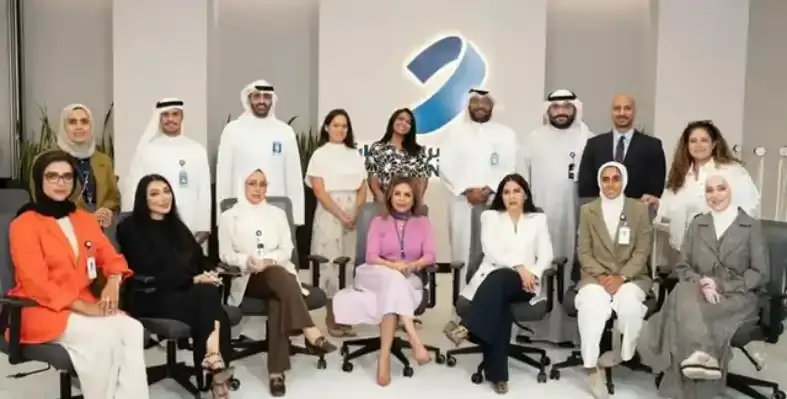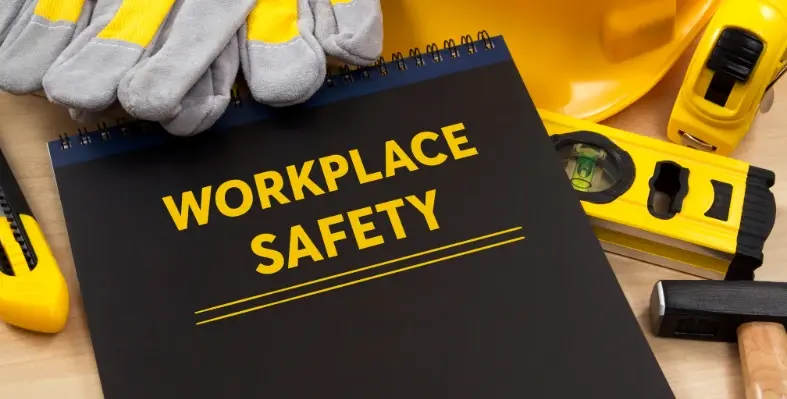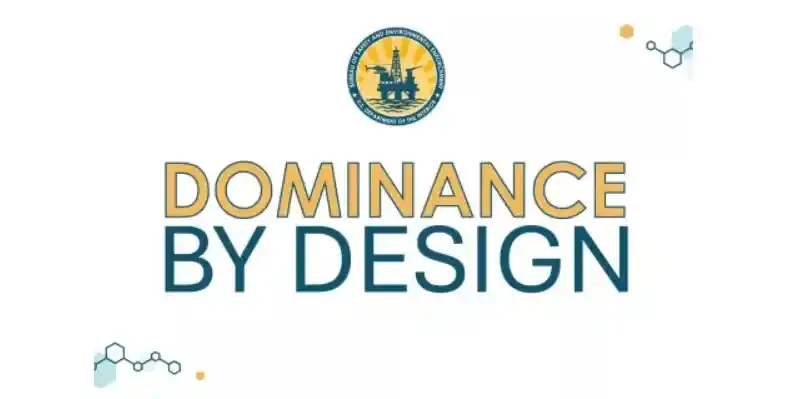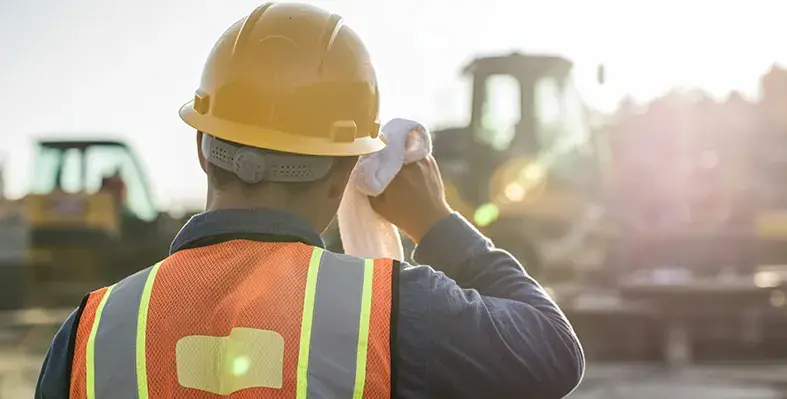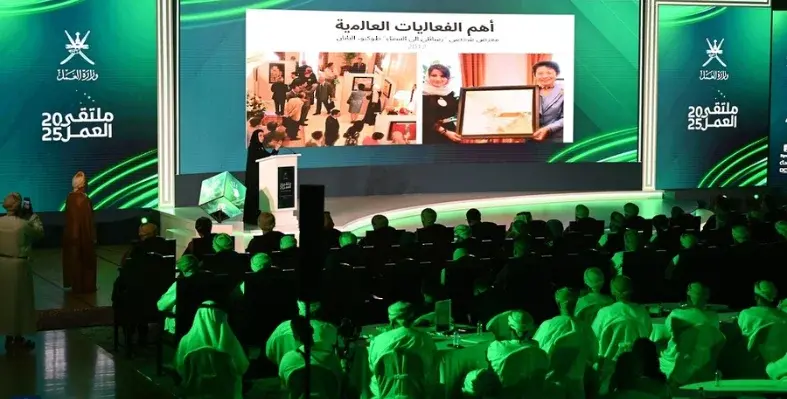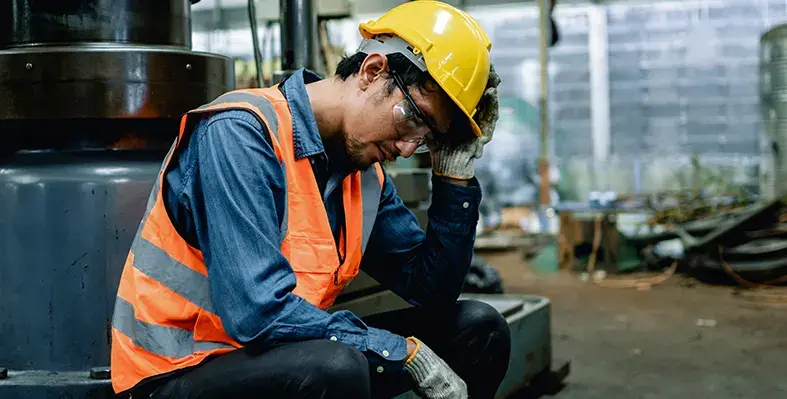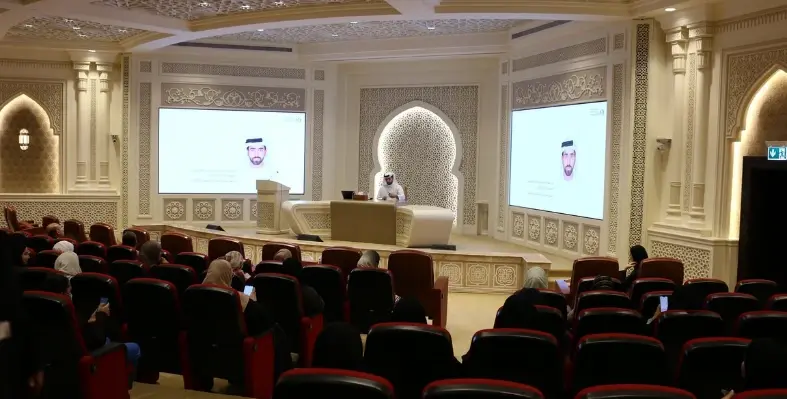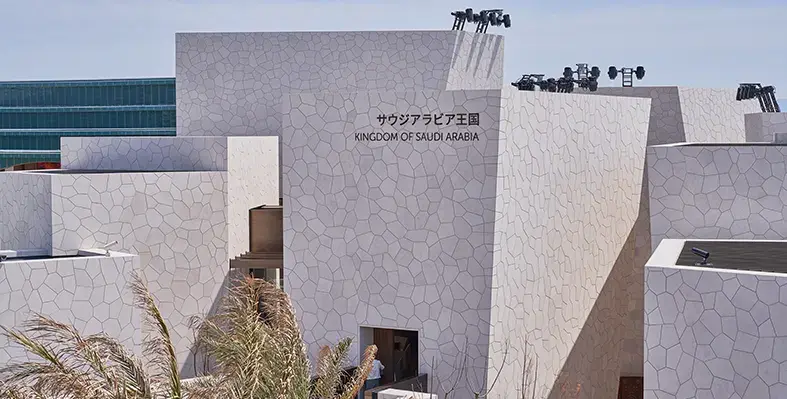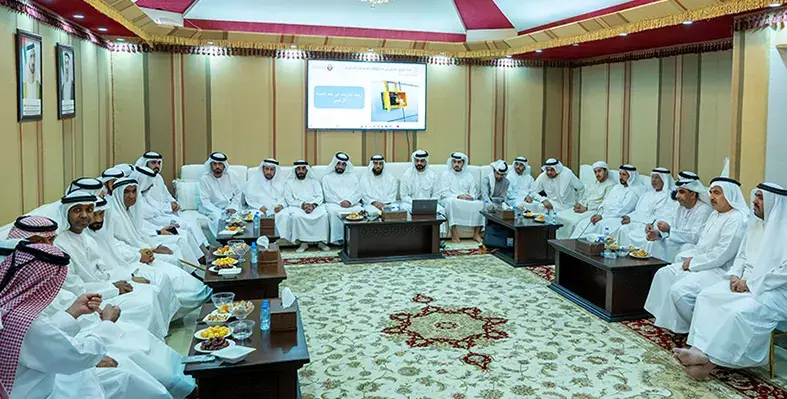Regional Coverage
Regional Coverage
- Details
- Sania Aziz
- North America
- Date: 13 August 2025
- Year: 2025
The Voluntary Protection Programs Participants’ Association (VPPPA) has unveiled a new initiative aimed at helping companies enhance workplace safety and health performance.
Named the “Journey Toward Safety Excellence,” the programme was announced at the 2025 Safety+ Symposium in St. Louis in Missouri and provides organisations with a structured improvement plan.
The initiative offers a combination of self-assessments, mentoring, and customised guidance to support companies in strengthening their safety management systems. The programme is set to officially launch on 1 September.
Terry J. Schulte, Chairperson of VPPPA, explained that the initiative is designed to help employers achieve the performance standards seen at top-tier OSHA Voluntary Protection Program (VPP) sites.
To support this, the association has developed a free gap analysis tool that enables organisations to identify strengths and weaknesses within their existing safety and health practices. Participating companies can sign a letter of commitment and work alongside experienced mentors to create tailored improvement plans.
The launch of “Journey Toward Safety Excellence” follows OSHA’s announcement of its new “Pathways to Safety and Health Success” programme, which expands the core elements of VPP from four to seven and aligns them with OSHA’s recommended best practices.
Schulte noted that the VPPPA initiative is intended to complement OSHA’s programme, offering additional resources and support for companies striving to achieve excellence in workplace safety.
Established in 1985, VPPPA represents over 1,400 companies and worksites across the United States. The association promotes workplace health and safety through collaboration, mentorship, and educational programmes.
Further details about the “Journey Toward Safety Excellence” initiative are available on the official VPPPA website.
- Details
- Matthew Hayhoe
- Middle East
- Topic: HSE
- Region: Middle East
- Date: August 12th
- Year: 2025
The inaugural EMotional Aid workshop saw Burgan Bank partner with Anara and Dr. Kim Dillen, PhD, a neuropsychologist, to empower senior staff with the skills to turn them into emotional wellness champions in the workplace.
Zahra Boarki, the bank's senior manager of internal communication, said the workshop "extends [the bank's] ongoing commitment to instilling mental health as a fundamental pillar of its corporate work culture". Prioritizing our employees’ health and safety stems from our belief that a balanced environment is a catalyst for growth and creativity.
"We are committed to maintaining a robust series of internal events and activities that seek to enrich all aspects of our employees’ lives, bolstering their physical and mental wellbeing at all times."
Graduates from the workshop become emotional wellness champions, allowing them to better cater to their team's personal wellness needs and professional support requests.
- Details
- Sania Aziz
- North America
- Date: 8 August 2025
- Year: 2025
The U.S. Department of Labor’s Occupational Safety and Health Administration (OSHA) is joining forces with businesses nationwide to celebrate Safe + Sound Week from 11-17 August 2025.
This annual campaign highlights the achievements of workplace safety and health programmes and provides valuable information to help keep workers safe across the country.
Safe + Sound Week encourages organisations to adopt effective safety measures that enable them to identify and manage workplace hazards proactively. By doing so, businesses can prevent injuries and illnesses, enhance overall sustainability, and improve their financial performance.
The 2025 event will focus particularly on emergency preparedness and response. Emergencies can occur unexpectedly anywhere and at any time, posing risks not only to workers but also to customers and the public.
Such incidents can disrupt operations, cause physical harm, or result in environmental damage.
During the week, OSHA will offer resources aimed at helping businesses stay informed about potential risks, develop robust emergency action plans, and prepare employees to respond quickly and effectively if an emergency arises.
These tools are designed to support organisations in building resilience and protecting their workforce.
Safe + Sound Week is open to all organisations regardless of their size or industry sector. Participation demonstrates a company’s dedication to workplace safety and provides an opportunity to strengthen existing safety and health programmes.
Last year, over 5,000 businesses took part in Safe + Sound Week, working together to raise awareness of the importance of safety in the workplace.
The initiative continues to grow each year, reflecting a shared commitment to creating safer and healthier work environments across the United States.
- Details
- Matthew Hayhoe
- North America
- Topic: HSE
- Region: North America
- Date: August 7th
- Year: 2025
A two-day workshop launched the Bureau of Safety and Environmental Enforcement (BSEE)'s new 'Dominance by Design' initiative, which unites experts and government representatives to develop future offshore resource strategy.
The workshop was held at the BSEE's Gulf of America regional office, and was described as "a unique opportunity to engage directly with the experts who operate in the field every day... this engagement has provided BSEE with invaluable insights to ensure our oversight is not just robust, but also agile and efficient," by the bureau's assistant director Seong Kim.
Evan Zimmerman, the Offshore Operators Committee's executive director, praised the new initiative.
"This session was highly valuable, providing a constructive platform to identify and address challenges in our offshore energy permitting processes.
"By focusing on the permit-related data, we can take a practical approach to improving efficiency and streamlining pathways for important offshore energy projects, supporting American energy goals."
The BSEE has confirmed plans to hold additional 'Dominance by Design' sessions to ensure a smart and strategic approach to developing the offshore energy sector.
- Details
- Louise Waters
- Middle East
- Topic: HSE
- Region: Middle East
- Date: 6 August 2025
- Year: 2025
Aqil Abdul Ali Bu Hussain, Assistant Undersecretary for Labor Relations at Bahrain’s Ministry of Labor, has confirmed 99.96% compliance to date with the midday work ban
In common with its Gulf neighbours, Bahrain prohibits outdoor work at the hottest time of day in the summer months – in Bahrain’s case from 12 to 4pm from 15 June to 15 September – to protect workers from the dangers of heat stress. Violators are subject to imprisonment for up to three months and fines ranging from BD500 to BD1,000, or either penalty. The ministry has also opened a hotline for members of the public to report any violations observed during the midday work ban period.
The Assistant Undersecretary attributed the high level of compliance to the effective partnership between the Ministry and employers in ensuring a safe and healthy work environment, and embodies the Kingdom of Bahrain's commitment to international labour standards ensuring the rights and safety of workers. Prior to the ban taking effect, the Ministry held awareness workshops with occupational safety officers and supervisors from private sector establishments, and published educational materials through its online platforms to inform workers about the risks of heat stress and midday sun exposure.
The Assistant Undersecretary said that the Ministry’s inspection team identified just six violations during the two months following the midday work ban taking effect, affecting 12 workers, after the team carried out 17,605 inspection visits. He praised the level of awareness among employers and workers of the importance of adhering to the decision, which contributes to protecting workers from summer risks and diseases, and raising work efficiency and productivity. He also stressed that the Ministry continues to enhance its advice through its electronic platforms regarding the danger of heat stress and exposure to direct sunlight at noon, to improve occupational health and safety in workplaces.
The Assistant Undersecretary pointed out that the Kingdom of Bahrain continues to implement best practices and occupational health and safety requirements to protect workers from occupational injuries during this time of high temperatures and humidity.
- Details
- Sania Aziz
- Middle East
- Date: 6 August, 2025
- Year: 2025
From the meeting room to the factory floor – and from the office to the construction site – the uvex 1 x-cite women’s safety footwear range offers the ideal blend of style, comfort, and protection.
Designed for professionals who move between multiple environments without wanting to sacrifice fashion or safety, the new S3L models come in three sleek options: a low-cut shoe, a Chelsea boot, and a lace-up boot. Each is designed to complement business wear while meeting the demands of more hazardous settings.
Engineered for performance, the shoes feature a slip-resistant PU outsole, a lightweight carbon toe cap for a slim silhouette, and a clean design with minimal seams to reduce pressure points.
Hydrophobic leather and breathable textile lining ensure all-day comfort, while the ESD-certified, metal-free build includes a removable, antistatic comfort insole.
Sustainability is also central to the design, with recycled materials incorporated into the penetration-resistant midsole and insole.
Having already won the German Design Award in the “Workshop and Tools” category earlier this year, the footwear line has now been honoured with the prestigious “Red Dot Award: Product Design 2025.”
The award was handed out to uvex in July this year.
A uvex delegation accepted the accolade at the Designers’ Night in Essen, where the jury commended the product for its innovative blend of function and form.
Safe and comfortable
The jury of the internationally renowned Red Dot Design Award praised the product with the following statement: “The uvex 1 x-cite provides an elegant solution for women’s safety shoes, combining adequate protection with a stylish appearance.”
Benjamin Kirsch, product manager footwear, who played a key role in the design of the shoes, is delighted with the award on behalf of his team. He said, "With our uvex 1 x-cite, we make no compromises, neither in terms of safety nor style. Safety shoes are getting closer and closer to looking like modern trainers. However, genuine design statements that combine the latest fashion trends with elegant functionality are still a rarity. This is exactly where we come in - with a look that not only protects, but is also stylish.”
The uvex group brings together four companies under one umbrella: the uvex safety group, the uvex sports group (comprising uvex sports and ALPINA), the Filtral group (Filtral and Primetta), and Protecting People GmbH, which handles the B2C segment. Headquartered in Germany, uvex maintains a strong manufacturing presence in the country, with around 60% of its nearly 3,000 employees (as of FY 2020/21) based there. Across the globe, the group operates through 49 branches in 22 countries.
In the Middle East, uvex has built a solid reputation as a trusted provider of personal protective equipment (PPE) across diverse sectors including oil and gas, construction, manufacturing, and logistics. Its safety eyewear, helmets, gloves, and footwear are widely used on worksites across the GCC. With regional partners and distributors in the UAE, Saudi Arabia, and other key markets, uvex supports local compliance standards while offering German-engineered safety products designed for high performance in harsh environments. The company regularly participates in regional trade shows and industry events, reaffirming its commitment to workplace safety in the Middle East.
- Details
- Matthew Hayhoe
- Middle East
- Topic: HSE
- Region: Middle East
- Date: August 4th
- Year: 2025
The conference, organised by Oman's Ministry of Labour, unites over 1,000 industry leaders across 12 days to lay out the future of Oman's worker market and skills economy, addressing key workforce challenges—including HSE obstacles
Dhofar's director-general of labour, Nasser bin Salim Al Hadhrami, led the opening remarks. "We are witnessing rapid shifts in labour markets worldwide. Challenges such as skill mismatches cannot be tackled in isolation. Oman recognises this and has taken decisive steps—most notably with the issuance of the new Labour Law and Social Protection Law.
"These reforms are not just reactive, but proactive measures rooted in global best practices and local realities."
Industry leaders, senior officials, global sector experts, academics and government legislators are all expected to attend; Mohamed bin Hassan Al Obaidli, director-general of the Executive Office of the GCC Council of Labour Ministers, is one such representative.
"“It is our shared responsibility—as governments, institutions, and social partners—to rethink employment policies, skills training, and social protection models that are inclusive, forward-looking, and fair."
- Details
- Louise Waters
- Middle East
- Topic: HSE
- Region: Middle East
- Date: 31 July 2025
- Year: 2025
Qatar's Ministry of Public Health (MoPH) has conducted a training workshop on heat stress during the summer season, attended by around 250 occupational health and safety officers from companies operating in the country
The two-day workshop forms part of the Ministry's ongoing efforts to raise awareness of occupational health and safety in workplace environments and aimed to raise awareness among occupational health and safety officers in companies about the importance of taking necessary preventive measures to avoid heat stress injuries, and to enable them to pass this knowledge on to workers within their companies.
Topics included definitions and types of heat stress, methods of prevention, first aid to be administered at work sites, the impact of sunlight on the eyes, and laws related to working in open spaces during the summer.
Dr Salah Abdulla Alyafei, director of the Health Promotion Department at the Ministry of Public Health, stated, “Heat stress remains one of the most significant risks to workers’ health and safety. Rising temperatures and humidity during the summer pose an increasing challenge. Given the diversity of the workforce, many workers may be unaware of the dangers or unfamiliar with proper protective measures.”
“Each year, the Ministry of Public Health, through its Occupational Health Section, runs a dedicated heat stress programme targeted at company health and safety managers and supervisors. This initiative is aimed at improving awareness of heat stress symptoms and preventive actions. As part of the programme, multilingual educational materials are distributed across workplaces, highlighting ways to prevent heat-related issues during the summer. We greatly value the strong collaboration between the Ministry of Public Health and the Ministry of Labour in organising these joint awareness campaigns.”
In common with its Gulf neighbours, Qatar enforces a midday work ban in the summer months, which in the case of Qatar prohibits outdoor work, or work in unshaded or unventilated areas, from 10:00 AM to 3:00 PM between 1 June and 15 September each year, in a bid to protect workers from the dangers of summer heat stress. This has significantly contributed to reducing heat-related injuries.
- Details
- Sania Aziz
- Middle East
- Date: 30 July 2025
- Year: 2025
The Sharjah Prevention and Safety Authority is strengthening its efforts to promote a culture of safety across the emirate through its “Safety Officers” programme, an initiative designed to improve occupational safety and instil best practices in workplaces.
The programme aims to equip participants with the knowledge and skills necessary to identify hazards, implement preventive measures, and respond effectively to potential risks, thereby reducing incidents and creating safer environments.
Since its launch, the initiative has seen strong uptake, with 325 individuals enrolled to date. Participants are trained in various safety protocols relevant to different sectors, positioning them as key figures in advancing safety awareness within their organisations. The programme forms part of the Authority’s broader strategy to build a more informed and safety-conscious workforce.
Engineer Mohammed Al Zarouni, who leads the Occupational Safety and Health Department at the Authority, underscored the importance of investing in human capital, noting that the programme is continuously being refined to stay aligned with evolving industry needs. He added that the Authority is committed to expanding the reach of the initiative to include additional sectors in its long-term plans.
The Authority is also working closely with relevant government and private sector entities to ensure the programme’s benefits are sustained over time. This collaborative approach is aimed at improving workplace safety standards across Sharjah and contributing to the emirate’s overall well-being and development.
Al Zarouni said, "We are very proud of the positive results from the Safety Officers programme. It has successfully improved participants' understanding of safety and created a group of skilled individuals who can help promote awareness and oversee safety efforts at workplaces. Remarkably, 85% of participants passed their written and practical exams. We've also seen a noticeable increase in their ability to recognise and respond to safety risks."
- Details
- Louise Waters
- Middle East
- Topic: HSE
- Region: Middle East
- Date: 29 July 2025
- Year: 2025
Saudi Arabia has showcased its health, safety and sustainability advancements at Expo 2025 Osaka
The Kingdom’s pavilion at Expo 2025 Osaka has received the WELL Health-Safety Rating, a globally recognised standard which recognises the measures taken by building owners and operators to promote the health, safety and wellbeing of their staff, visitors and stakeholders, in areas ranging from air and water quality to health and safety communications, access to health services, emergency planning, and sanitisation.
The Saudi pavilion is the first temporary structure to receive this certification.
Designed by Foster + Partners and inspired by traditional Saudi villages, the pavilion incorporates sustainability elements, including roof-top solar panels, low-carbon and light-weight materials, in line with the Saudi Green Initiative.
The Kingdom took part in the Global Initiative for Safety, Health and Well-being Conference held from 16-19 July at Expo 2025, where, for the first time in the history of the expo, Safety, Health and Well-being Days formed part of the official EXPO2025 programme, with a series of events dedicated to safety, health and well-being at work.
The Kingdom’s National Council for Occupational Safety and Health (NCOSH), under the Ministry of Human Resources and Social Development, and led by Secretary-General Majed Al-Fawiz, took part in the conference, where the delegation included representatives from the Ministry of Energy and Saudi companies.
This participation is a part of the Kingdom’s broader efforts to highlight its advancements in occupational safety, health, and employee well-being under Vision 2030.
Saudi Arabia’s NCOSH, along with the Ministry of Energy and several Saudi companies, also participated in the accompanying exhibition, which focused on cutting-edge solutions that enhance protection against occupational risks and promote health and well-being at work.
A key objective is to drive the digital transformation of workplace safety and prevention, leveraging AI to support all aspects of OSH management, risk prevention, and health promotion. The Kingdom highlighted key programmes and initiatives, as well as the latest technologies used to enhance work environments, and activities related to awareness, training, and incident reporting.
- Details
- Sania Aziz
- Middle East
- Date: 29 July 2025
- Year: 2025
The Abu Dhabi Department of Energy (DoE), in collaboration with Majalis Abu Dhabi at the Presidential Court, has held a series of community awareness sessions during the first half of 2025 focused on gas safety in buildings.
The initiative is part of the DoE’s broader efforts to promote public safety and strengthen social awareness across the Emirate.
Aimed at improving safe gas usage practices in homes and businesses, the sessions were designed to enhance community preparedness and reduce the risk of accidents.
By offering guidance on emergency response and safe handling procedures, the campaign supports the protection of lives, property, and infrastructure across Abu Dhabi.
The sessions were hosted at community Majalis in Abu Dhabi, Al Ain, and Al Dhafra, including venues in Mohammed bin Zayed City, Khalifa City, Al Falah, Al Rahbah, Al Sila, Remaah, and Al Alia.
Attendees were encouraged to ask questions, share feedback, and contribute their experiences, fostering two-way dialogue between residents and DoE representatives.
Eng. Ahmed Alsheebani, Executive Director of the Petroleum Products Sector at the DoE, emphasised the role of Majalis as key platforms for public engagement and consultation.
He stressed the importance of incorporating community input into service development and affirmed the DoE’s commitment to working with gas providers to update systems and adopt best practices to mitigate safety risks.
The initiative also falls under the broader "Year of Community" framework, underscoring the DoE’s drive to build stronger public connections and promote a culture of safety through inclusive communication.
- Details
- Sania Aziz
- North America
- Date: 28 July 2025
- Year: 2025
Honeywell has been selected to upgrade the fire alarm system at Phoenix Sky Harbor International Airport’s Terminal 4, the busiest terminal at the airport with over 80 gates across eight concourses.
The project will replace the original 2003 Honeywell system with advanced fire safety technology that meets the latest UL standards.
As part of the upgrade, new automated devices and enhanced system modules will improve emergency response and operational efficiency.
A digital dashboard will provide real-time insights, helping to cut maintenance costs and reduce manpower amid ongoing labour shortages.
Updated maps through Honeywell’s Enterprise Buildings Integrator (EBI) platform will also improve alarm visualisation and guide emergency responders more accurately.
The project is scheduled for completion in 2026 and will ensure full protection for the terminal, which serves nearly 94,000 passengers daily, throughout the process.
The project highlights Honeywell’s role in delivering safety-critical infrastructure upgrades while supporting broader megatrends in automation, aviation, and the energy transition.
“This award to enhance the Phoenix Sky Harbor International Airport's fire alarm system reflects our commitment to delivering innovative and reliable automation solutions that protect this busy airport while also helping ensure uninterrupted operations for passengers and staff,” Sudhakar Janakiraman, president, Honeywell Building Solutions.
“We are honored to work on this vital safety initiative that builds on a long-standing and valued relationship.”


